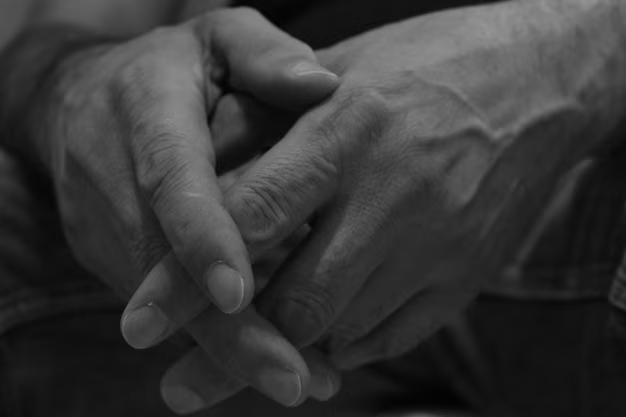Your Guide to What Is Parkinsons
What You Get:
Free Guide
Free, helpful information about Parkinsons FAQ and related What Is Parkinsons topics.
Helpful Information
Get clear and easy-to-understand details about What Is Parkinsons topics and resources.
Personalized Offers
Answer a few optional questions to receive offers or information related to Parkinsons FAQ. The survey is optional and not required to access your free guide.
Understanding Parkinson’s Disease: What You Need to Know
Parkinson's disease, a term that can evoke apprehension and uncertainty, refers to a chronic and progressive neurological disorder that primarily affects movement. This condition arises from the deterioration of nerve cells in a specific region of the brain called the substantia nigra. These cells are responsible for producing dopamine, a crucial neurotransmitter that enables smooth and coordinated muscle movements. As Parkinson's progresses, the lack of dopamine leads to the classic symptoms associated with the disease.
Key Symptoms and Characteristics
The symptoms of Parkinson's are as unique as the individuals affected, yet they often share common traits. Here are some of the primary symptoms:
- Tremor: Often beginning in the hands, fingers, or chin, this involuntary shaking is one of the most recognizable hallmarks of Parkinson's.
- Bradykinesia or slowed movement: Even simple tasks can become time-consuming and effortful, causing significant frustration and impacting daily life.
- Muscle rigidity: Stiffness in the limbs and trunk can limit your range of motion and cause discomfort.
- Impaired posture and balance: Over time, Parkinson's can lead to a stooped posture and balance problems, increasing the risk of falls.
- Loss of automatic movements: Actions such as blinking, smiling, or arm swinging while walking can decrease.
Diagnosis generally involves a clinical evaluation, as no single test currently exists to confirm Parkinson's. Neurologists may use medical history, physical examinations, and response to Parkinson's medication to make a diagnosis.
Living with Parkinson's
Managing Parkinson’s effectively requires a comprehensive approach. Here are some strategies that can help:
- Medication: Drugs like levodopa, dopamine agonists, and MAO-B inhibitors are commonly prescribed to manage symptoms and improve quality of life.
- Exercise: Regular physical activity can enhance mobility, flexibility, and balance, proving beneficial in managing symptoms.
- Therapy: Speech and physical therapy can provide targeted support in coping with the disease's effects on communication and movement.
- Nutrition: A balanced diet supports overall health and can alleviate some Parkinson’s symptoms.
With medical costs escalating, the financial burden of managing a chronic condition like Parkinson's can be concerning. Fortunately, there are resources available to alleviate some of this stress.
Navigating Financial Assistance and Resources
Coping with Parkinson’s disease involves not just medical and lifestyle adaptations but also financial planning. Numerous programs and resources are designed to help patients and families navigate the associated costs:
- Government Aid Programs: Several options exist, such as Social Security Disability Insurance (SSDI) and Medicare, to support long-term care needs.
- Financial Assistance: National organizations like the Parkinson’s Foundation provide grants and subsidies for treatment-related expenses, reducing the strain on personal finances.
- Debt Relief Options: If medical expenses have led to debt, some programs offer restructuring or relief solutions, enabling you to manage repayments without added stress.
- Educational Grants: For younger patients or family members pursuing education, scholarships tailored for those affected by Parkinson's can provide valuable opportunities.
Quick Access to Resources
Here’s a quick guide to relevant assistance options:
- 📑 Social Security Disability Insurance (SSDI): Financial support for individuals unable to work.
- 📚 Medicare & Medicaid: Health coverage programs for eligible Parkinson’s sufferers.
- 🏦 Parkinson’s Foundation Grants: Financial aid for treatments and resources.
- 💳 Debt Management Programs: Solutions for those overwhelmed by medical debts.
- 🎓 Scholarships: Educational funding opportunities for family members affected by Parkinson’s.
By understanding Parkinson’s disease and exploring available support options, patients and their loved ones can navigate the condition with confidence and peace of mind.
What You Get:
Free Parkinsons FAQ Guide
Free, helpful information about What Is Parkinsons and related resources.

Helpful Information
Get clear, easy-to-understand details about What Is Parkinsons topics.

Optional Personalized Offers
Answer a few optional questions to see offers or information related to Parkinsons FAQ. Participation is not required to get your free guide.


Discover More
- Are There Environmental Causes Of Parkinsons
- Can Alcohol Cause Parkinson's
- Can Concussions Cause Parkinson's
- Can Concussions Cause Parkinson's Disease
- Can Dogs Get Parkinson's Disease
- Can Dogs Get Parkinsons
- Can Dogs Have Parkinson's
- Can Dogs Have Parkinson's Disease
- Can Females Get Parkinson Disease
- Can Head Trauma Cause Parkinson's
